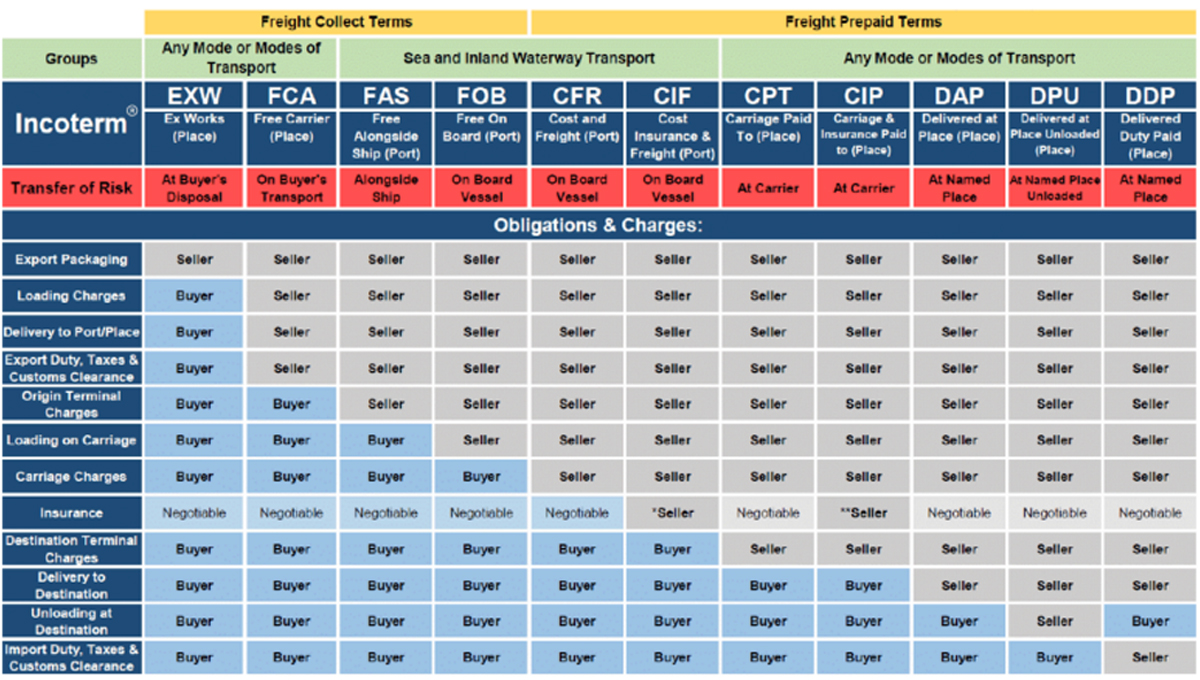Mon - Sat 10:00A.M -7:30P.M
Mon - Sat 10:00A.M -7:30P.M
Mon - Sat 10:00A.M -7:30P.M
Mon - Sat 10:00A.M -7:30P.M
In essence, Incoterms® serve as the agreed-upon selling terms in international transactions between buyers and sellers of goods. These regulations hold global recognition by governments and legal entities. Understanding Incoterms® is indispensable in international trade as they precisely delineate the responsibilities, costs, and risks allocated to both parties.
These terms specify the juncture at which the seller’s liabilities and risks shift to the buyer. Moreover, it’s crucial to note that not all regulations are universally applicable. Some encompass various modes of transportation, including road, rail, air, and sea. Modes such as FCA, CPT, CIP, DAP, DPU (replaces DAT), and DDP are applicable for transport by any mode. Meanwhile, regulations like FAS, FOB, CFR, and CIF pertain specifically to sea or inland waterway transport, as elaborated below.
There are specific instances that Incoterms will not cover. Incoterms do not:
Due to the omission of certain sale conditions, working only with Incoterms can be constricting. All parties involved in any contract should make sure that the applicable instances above are addressed before signing the contract; this ensures a smooth business transaction, as many legal matters can arise when the parties are working only with Incoterms.

Incoterms serve as valuable tools in simplifying international trade transactions. They are differentiated based on the mode of transport. These terms delineate the responsibilities between buyers and sellers, yet certain elements of trade, such as the nature of goods or future liability obligations, remain outside their scope. Therefore, while Incoterms play a crucial role in clarifying agreements, they should complement rather than encompass the entirety of the trade arrangement